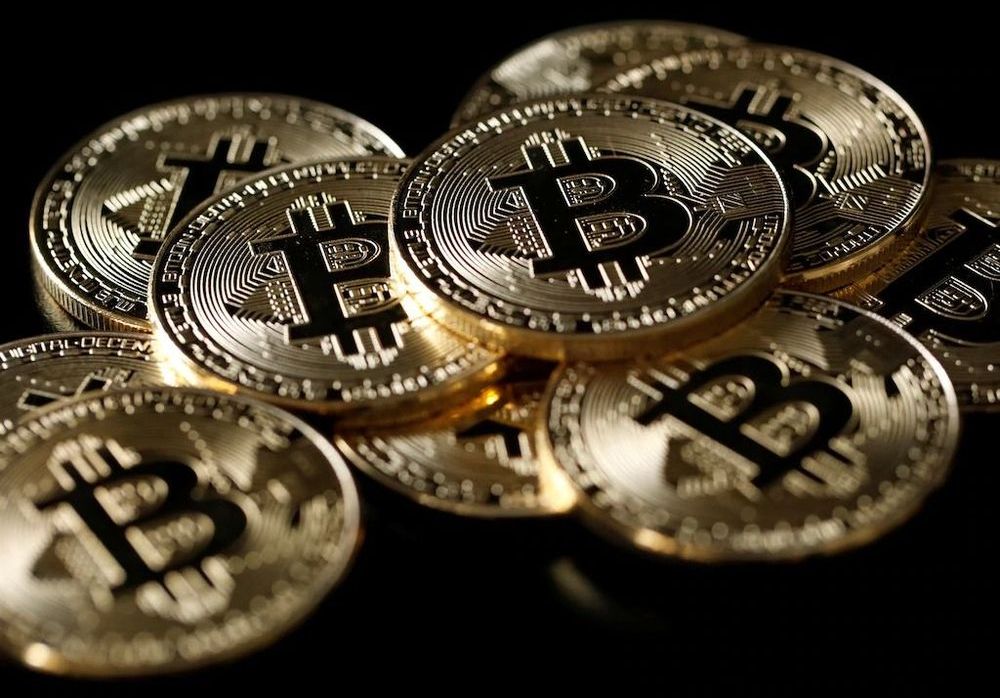Five of the world’s biggest central banks recently announced that they’ve banded together to seriously explore central bank digital currencies.



Over at the always interesting Small Wars Journal, Tony Corn has a stimulating piece on the implications of the European crisis for world politics. He sees a clueless German policy establishment recklessly moving toward an unsustainable quest for power reminiscent in too many ways of problems Germany has had in its past.
Germany, warns Corn, is planning to use its financial domination of Europe to remake the EU into an extension of German power — more or less the way that Prussia used the Zollverein to bring northern Germany under its control and then dominated the Bismarckian Reich through a rigged constitutional system. Once that is in place, he writes, the Germans will continue their policy of deepening relations with Russia at the expense of NATO and transatlantic ties, and end Europe’s embargo on arms sales to China.
As an analyst, Corn sometimes goes to what we more placid types at VM consider overexcited conclusions about Eurasian power realignments. Safely ensconced among the storied oaks and elms, gazebos, pergolas, ha-has, follies and deer parks surrounding the stately Mead manor in glamorous Queens, we tend to take a wait-and-see attitude toward organizations like the Shanghai Cooperation Organization which Russia and China have sometimes posited as a kind of embryonic counter-NATO. Corn, in our perhaps excessively complacent view, can be too quick to take vague Eurasian fantasies and aspirations about diplomatic revolutions as accomplished facts; it is easier to dream about firm Russian and Chinese anti-US cooperation than for those two countries to make it work. But that said, there is no doubt that Corn’s industry, historical grounding and sensitive, even over-sensitive nerve endings give him the ability to produce original and striking ideas.

Investment in the fast-growing space industry was booming well into the first quarter of 2020 but private capital has largely frozen as the coronavirus pandemic strikes the U.S., leading both civil and military agencies to step up funding for corporate partners.
“We kicked into high gear as soon as it was apparent a lot of companies were not going to be able to conduct business as usual due to distancing requirements,” Mike Read, International Space Station business and economic development manager at NASA’s Johnson Space Center, told CNBC.
U.S. equity investment in space companies totaled $5.4 billion across 36 deals in the first quarter, according to a report Friday by NYC-based firm Space Capital. But the second quarter is likely to just see a fraction of that investment, according to Space Capital managing partner Chad Anderson, as deal flow in the U.S. will follow China’s path. Chinese investment in space was climbing by record amounts until the first quarter, when “activity in China was basically shut off,” Anderson said.


Idaho-based beef purveyor Snake River Farms is donating 35,000 10-ounce steaks to Bay Area food banks, with a total value of $2 million, the San Francisco Chronicle reports. It’s part of a larger initiative the company announced last week, which will send $8 million worth of its American wagyu to cities around the country to feed hospital workers, laid-off restaurant staff and other communities affected by the Covid-19 crisis. Snake River is relying on regional distribution partners in Los Angeles, Seattle, New York and San Francisco to help them get their donation to nonprofits.
With restaurants shut down, Snake River Farms is giving its premium beef a good home.

👏🙌💪Farmers around the country have been forced to dump milk and waste fresh produce as schools, restaurants and other institutions remain closed due to the coronavirus pandemic. In response, Supermarket chain Publix launched a new initiative Wednesday to help struggling farmers — and get the food to Americans who need it most.
https://www.cbsnews.com/serviceworker.js
Farmers around the U.S. have been forced to dump milk and destroy produce as schools, restaurants and other institutions remain closed due to the coronavirus pandemic.
US banks are pulling back from lending to European companies during the coronavirus pandemic, fuelling concerns that Wall Street may be quietly withdrawing to its home market in a repeat of the last financial crisis.
Bankers, advisers and company executives said American lenders had become more cautious in underwriting bilateral and syndicated loans to large corporate clients across the region in recent weeks. In Germany, JPMorgan recently pulled out of talks over an additional credit line for BASF, the world’s largest chemicals group, according to people involved in the transaction. Similarly, Bank of America lent half as much as the other six international banks that underwrote a €3bn state-backed loan to sportswear giant Adidas.
Goldman Sachs — which helped underwrite a €3.5bn syndicated loan for Italian-American carmaker Fiat Chrysler this month — did not take part in a similar €12bn facility for German rival and long-standing client Daimler, leaving other lenders to make up the difference.

#Hackers are seeking to exploit the roll-out of government financial relief plans to fill their own pockets at the expense of businesses and affected workers, Israeli cyber researchers have revealed.
Hackers are exploiting the rollout of governmental financial relief to fill their pockets at the expense of businesses and affected workers, according to Israeli cyber researchers.
In recent weeks, governments have sought to ease cash-flow shortages and avoid a recession with ambitious stimulus packages and grants to households, including a massive $2 trillion economic package in the United States.
According to researchers at Israeli cybersecurity giant Check Point, a major increase in malicious and suspicious domains related to relief packages has been registered in recent weeks. The hackers aim to scam individuals into providing personal information, thereby stealing money or committing fraud.
“To do this, they are evolving the scam and phishing techniques that they have been using successfully since the start of the pandemic in January,” the researchers wrote in a recent report.

Why is Alcor in Arizona? The main reason is that the risk of earthquakes and other natural disasters is fairly low. People opting for cryonics expect that their bodies might be in stasis for timescales measured in centuries.
As far as financial matters go, many of Alcor’s clients use life insurance policies to cover the cost of preservation and maintenance ($200,000 for a whole body or $80,000 for just the head). People use trust funds if they have net worth they want to recover when revived in the future.
The rationale presented to those considering cryonics is that there’s no guarantee they will ever be revived, but that it is reasonable that they might be. Along with chemicals called cryoprotectants, bodies getting preserved receive a host of medications. The list of the agents used is constantly evolving and continuing research is likely to reveal alternative methods that preserve organ function and cell integrity better. This means that cryopreservation is likely to work better years and decades into the future than it works now, even before getting to the milestone of having somebody revived.

For the last couple of years, Artificial Intelligence (AI) has been changing many fields and increasing efficiency by using improved datasets. One of those areas where AI has accelerated evolution is the robo-advisory, which is a field having extensive financial big data to analyze.
Robo-advisors are the systems that use algorithms to automatically perform investment decisions or tasks which are mostly done by human advisors. “Robo advisors are a potential solution to the complexities of financial decision making,” said Jill E. Fisch, a law professor at the University of Pennsylvania at a conference of Pension Research Council.
In the main scheme, robo-advisors are merging customers’ information such as their financial goals, risk tolerances, timeframes, with the right asset allocation that qualifies customer’s needs. While making this merge, they use many algorithms including machine learning models to create the best fit for the customer. In the process of timeframe, they take lots of actions as well such as rebalancing the portfolio or performing tax-loss harvesting. This automatically increases efficiency while taking decisions at the right time for the portfolio.